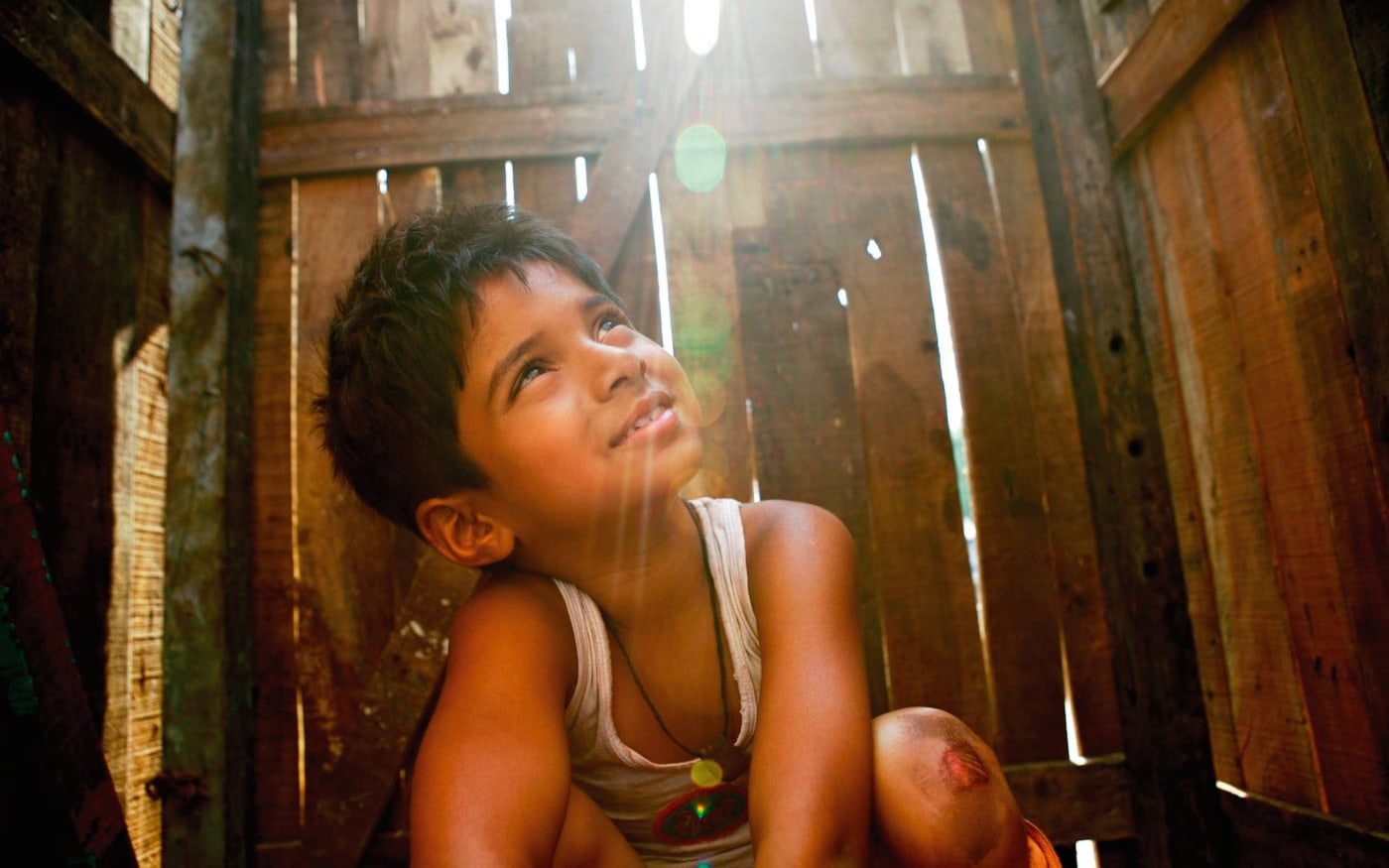Slumdog Millionaire by Danny Boyle (Review)

When it comes right down to it, I didn’t dislike Slumdog Millionaire at all — I’m always a sucker for Danny Boyle’s style and flourishes, the soundtrack was great, and there were certain scenes that hit me hard — but I fail to understand how it was able to dominate the recent Critics’ Choice Awards.
Or, to put it another way, I went in hoping for another Millions, but left realizing I’d seen another Sunshine — a film that has some brilliant moments, but ultimately stumbles before the end credits roll.
I will say, though, that as the parent of a soon-to-be one-year-old, the scenes of the characters when they were young children hit me hard (and that was doubly true for Renae). I don’t agree with some of the criticisms that Boyle’s inclusion of the tragedies and trials is “touristic” and “colonialist,” which I assume to mean that the film was presenting a “Western” and therefore condescending view of Indian culture.
To the contrary, I appreciated the film for dropping me into this world, for showing me the grit and the grime. Sure, Boyle probably depicts it with a little more “razzle-dazzle” than it probably has — that’s what he does, and why he’s so great at what he does — but seeing those massive garbage piles, the religious violence and urban upheaval, and the backlit corners of red light districts (which had me thinking back to the plight of the children in Born Into Brothels) was a rather searing experience for me. It was a reminder of the world’s fallenness, and that victims of that fallenness are, all too often, children.
Those “childhood” scenes were far more interesting and involving than the “adult” scenes (i.e., those that dealt with the game show plot device, the romance, the talk about destiny, and so on). Slumdog Millionaire flounders in those scenes and loses much of the momentum that it had picked up in its earlier scenes, which have a desperation and urgency about them that’s lacking later in the film (despite all of the impassioned looks that the protagonist throws around the screen).
I didn’t find the all of the stuff about destiny, living on love, etc., hamfisted or clichéd but I did find it all somewhat anticlimactic considering the hell that we’ve seen the characters go through up to that point.
Of the three main characters, I actually found Salim — the hero’s older brother — the most interesting and complex; his survival instincts, violence, and greed provide a stark contrast to the hero’s idealism and honor. Salim is someone who’s fiercely opportunistic and willing to do anything for money, and yet also capable of fierce loyalty to his brother (as well as fierce betrayal).
The one bit of dialog that continues to stick with me is Salim’s final words. Were they meant sarcastically, as an attempt at redemption, or as a moment of divine revelation? How do they tie into the film’s theme of destiny? And why is Boyle so interested in stories about money-obsessed older brothers and idealistic, seemingly naive younger brothers?
FWIW, there’s a very involved and passionate discussion (natch) over at Arts & Faith.